Why Nations Fail Ilustrated
Lecture 10
Collapse of the State
Consequences of persistent extractive institutions
December 11, 2018
Masayuki Kudamatsu
Chapter 13, pp. 329-332, pp. 1-4 & 61
Week Ten
Chapter 13
Weeks 8-10: Persistence of Extractive Institutions
Week Eight
Chapter 9
Week Nine
Chapter 12
Colonization of
Southeast Asia by
Europeans in 17c
Slave trade in
sub-Saharan
Africa
British colonization
of South Africa
in 19c
Guatemala
Sierra Leone
Ethiopia
before/after
the 1974 coup
US South
before/after
American Civil War
Zimbabwe
Argentina
Colombia
North Korea
Uzbekistan
Egypt
Extractive Economic Institutions
Extractive Political Institutions
Today's theme:
Extractive institutions cause the collapse of the state
Collapse of the State

Today's Road Map
Zimbabwe
Sierra Leone (since the 1990s)
Colombia
Argentina
North Korea
Uzbekistan
Egypt

Today's Road Map
Zimbabwe
Sierra Leone (since the 1990s)
Colombia
Argentina
North Korea
Uzbekistan
Egypt

Image Source: parcel2go.com
Origin of extractive institutions in Zimbabwe
British colonized the area as Southern Rhodesia
1901
Very rich farmlands
Migration of Europeans
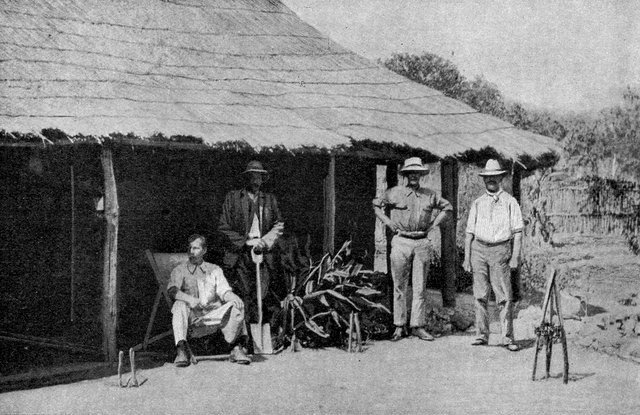
Image Source: Wikimedia Commons
White settlers in Southern Rhodesia in 1922
Origin of extractive institutions in Zimbabwe (cont.)
1923
Self-government granted from Britain
Apartheid regime introduced
in a similar fashion to South Africa's Natives Land Act of 1913
Source: Wikimedia Commons
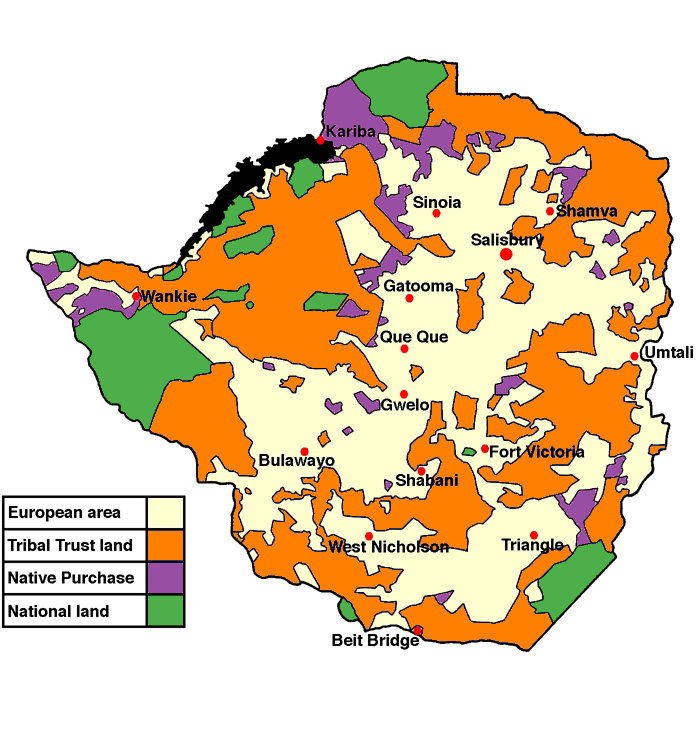
Land apportionment in 1965
Iron Law of Oligarchy in Zimbabwe
1980
Independence as a result of guerrilla wars by black citizens
Extractive political institutions emerged by 1990
20,000 killed in Matabeleland, the opposition's heartland
Two main political parties merged in 1987
to effectively become a one-party state
with Robert Mugabe as president
Senate abolished in 1990
with some legislative seats
reserved for Mugabe's appointees

Image Source: Wikimedia Commons
Iron Law of Oligarchy in Zimbabwe (cont.)
Extractive economic institutions inherited from colonial days
Regulations on prices and international trade
Obligatory agricultural marketing boards
(Insecure property rights / Restricted entry into new business
Difficult for black citizens to become rich
White citizens remain as the main business class
Worsening extractive institutions in Zimbabwe
2000
Expropriation of white farmers' land
Allocated to the ruling party's elite
Collapse of agricultural outputs & food price
Government prints money to buy foods, leading to hyperinflation
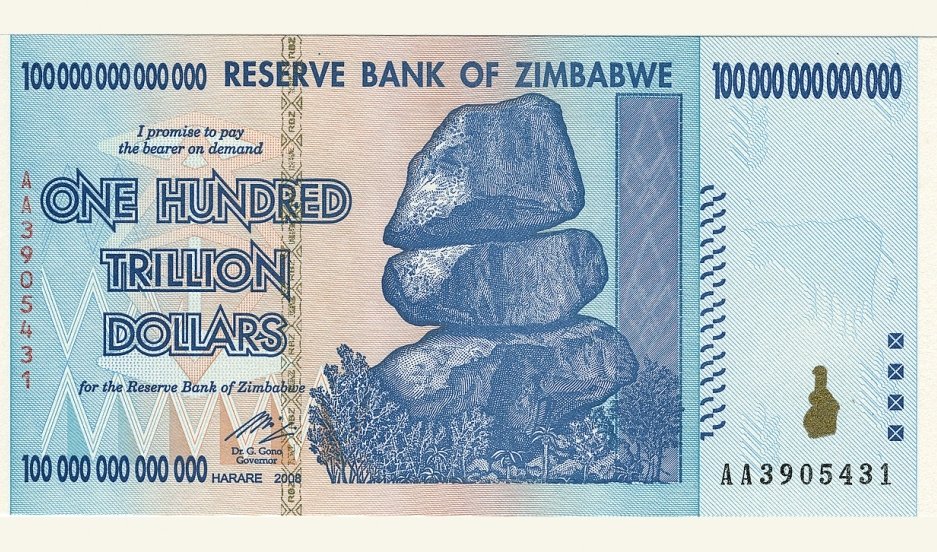
Image source: Wikimedia Commons
Zimbabwe today
Per capita income in 2008: half of 1980

GDP per capita (constant 2010 US$)
Source: World Development Indicators
Unemployment rate in 2009
94%
Zimbabwe today (cont.)
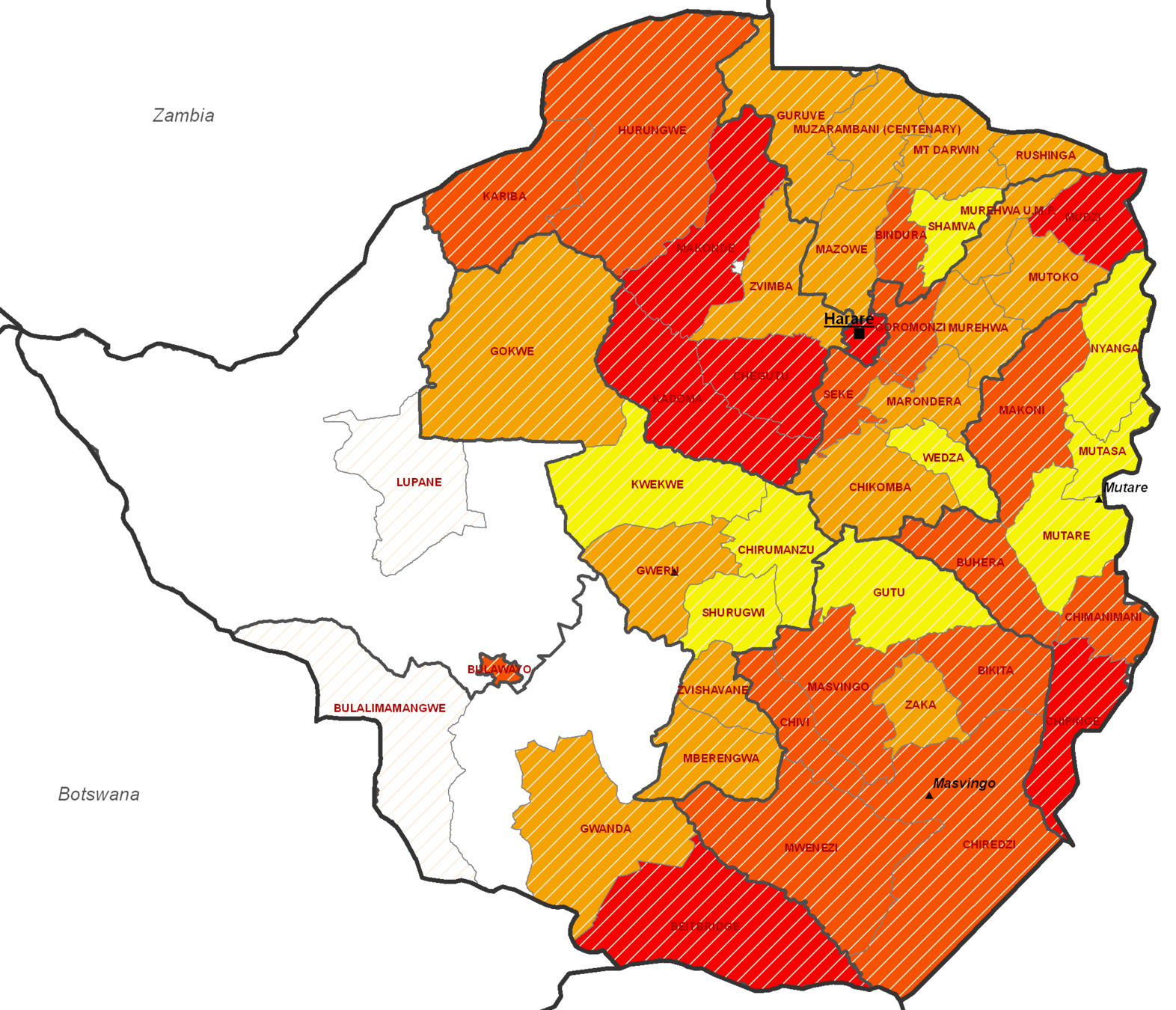
Cumulative # of cholera cases 18 Aug 2008 - 11 Jan 2009
Source: World Health Organization
Outbreak of cholera in 2008-09
(Deadliest in Africa in 15 years)
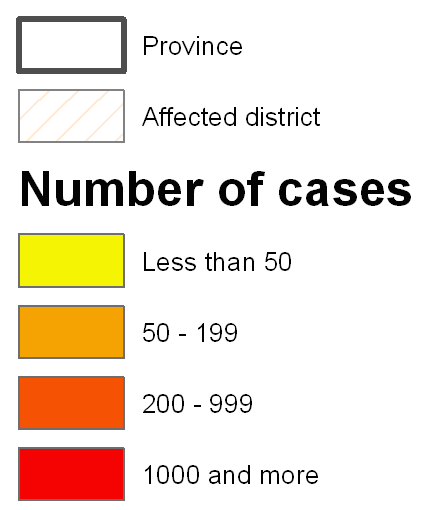
Extractive Economic Institutions
Extractive Political Institutions
Today's theme:
Extractive institutions cause the collapse of the state
Collapse of the State

Today's Road Map
Zimbabwe
Sierra Leone (since the 1990s)
Colombia
Argentina
North Korea
Uzbekistan
Egypt
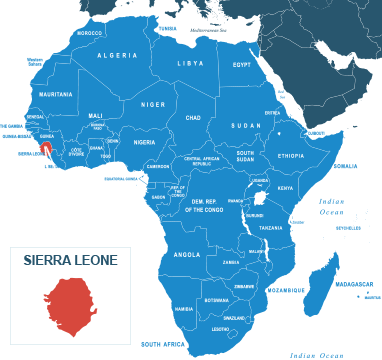
Image Source: parcel2go.com
Sierra Leone in the 1980s
Consequences of persistent extractive institutions (Lecture 9)
Roads fell into pieces
Schools disintegrated
National TV broadcast stopped in 1987
Transmitters sold by cash-strapped ministry
Radio tower fell down in 1989
No pay for civil servants, teachers, paramount chiefs
Sierra Leone Civil War (1991-2002)
Rebels (RUF), with Liberians & Burkinabes,
crossed the border from Liberia
No state capacity to control the border
RUF indiscriminately killed citizens
No one volunteers to join the rebel army
Forcibly recruit child soldiers
Forced labor to extract diamonds
Government army did the same
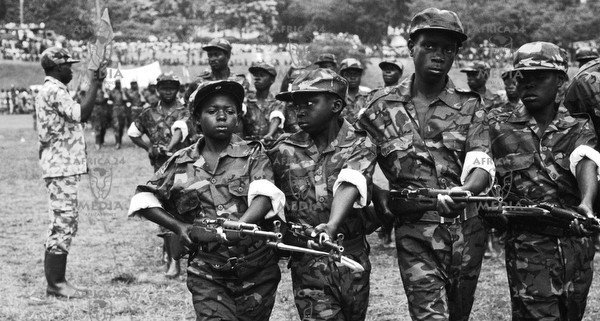
Image Source: Medium.com
Consequences
80,000 died, with massive human rights abuse
Roads, houses, buildings destroyed
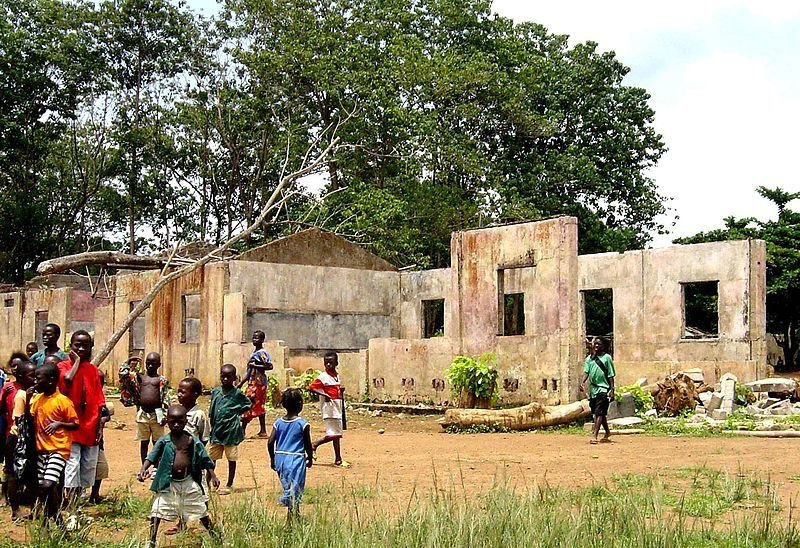
Image Source: Wikimedia Commons
A school building in Koindu circa 2001-2005
Extractive Economic Institutions
Extractive Political Institutions
Today's theme:
Extractive institutions cause the collapse of the state
Collapse of the State

Today's Road Map
Zimbabwe
Sierra Leone (since the 1990s)
Colombia
Argentina
North Korea
Uzbekistan
Egypt

Image Source: parcel2go.com
Colombia's extractive political institutions
Democracy
since 1958
Civil wars between government vs. communist guerrillas (1964-2016)
Inclusive
Extractive
Both
Plurality
and
Centralized
State
Either
Absolutist
or
Lack of
Centralization
Worsening extractive political institutions
Paramilitaries founded by Castano brothers in 1981
To protect themselves from communist guerrillas
Hired by landowners to protect their properties
Involved in extortion, kidnapping, murder
Source: Map 20 of Why Nations Fail
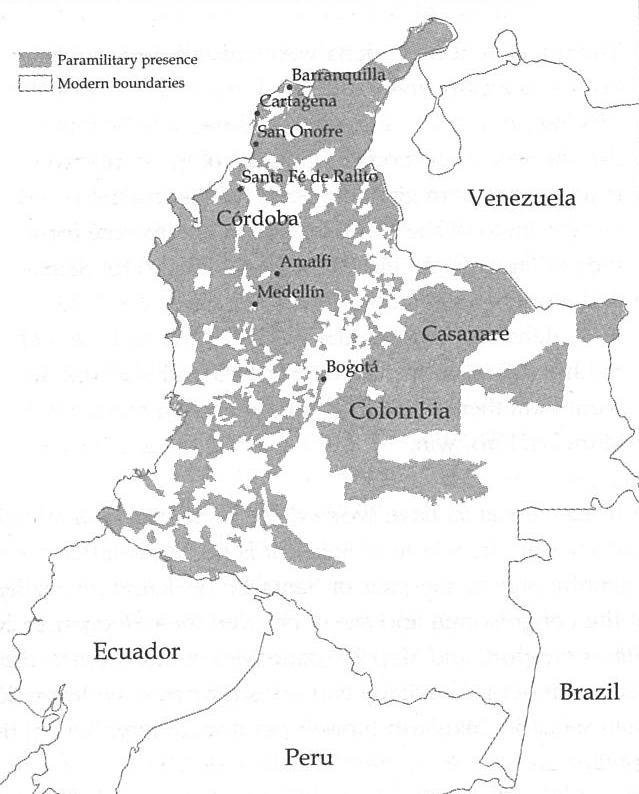
1997
Form a nationwide organization
called AUC
Paramilitary presence, 1997-2005
Worsening extractive political institutions (cont.)
AUC started involved in politics from 2002
Fix elections by threatening voters
1/3 of congressmen/senators owed their 2002 election to AUC
Support President Alvaro Uribe in his re-election in 2006
AUC took over municipal governments
10% of rural lands expropriated
National politicians allow AUC to do so, to get elected
Collect taxes for their own pockets
Consequences
4,500,000 (10% of population) displaced in 2010
Citizens murdered both by FARC and AUC

Today's Road Map
Zimbabwe
Sierra Leone (since the 1990s)
Colombia
Argentina
North Korea
Uzbekistan
Egypt

Image Source: parcel2go.com
Origin of extractive institutions in Argentina
Internal provinces such as La Rioja
Densely populated
before the Spanish conquest
Forced labor system
created by Spanish (Lecture 6)

Image Source: Wikimedia Commons
Origin of extractive institutions in Argentina (cont.)
19th century:
Local warlord Facundo Quiroga
marched into Buenos Aires
Extractive institutions survive
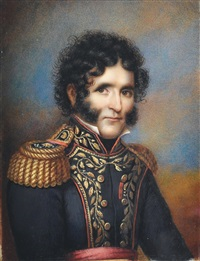
Image Source:
Warlords of internal provinces made a truce
with central government in Buenos Aires
They agreed to leave each other alone
Extractive political institutions in Argentina
Oscillates between democracy and military dictatorship since 1930
During democratic periods, institutions are not inclusive
9,000 executed in the 1970s
Dominated by
President Peron (1946-55) and his followers
Votes bought in exchange of govt contracts & jobs
President Menem (a Peronist) extended term limits in 1990s

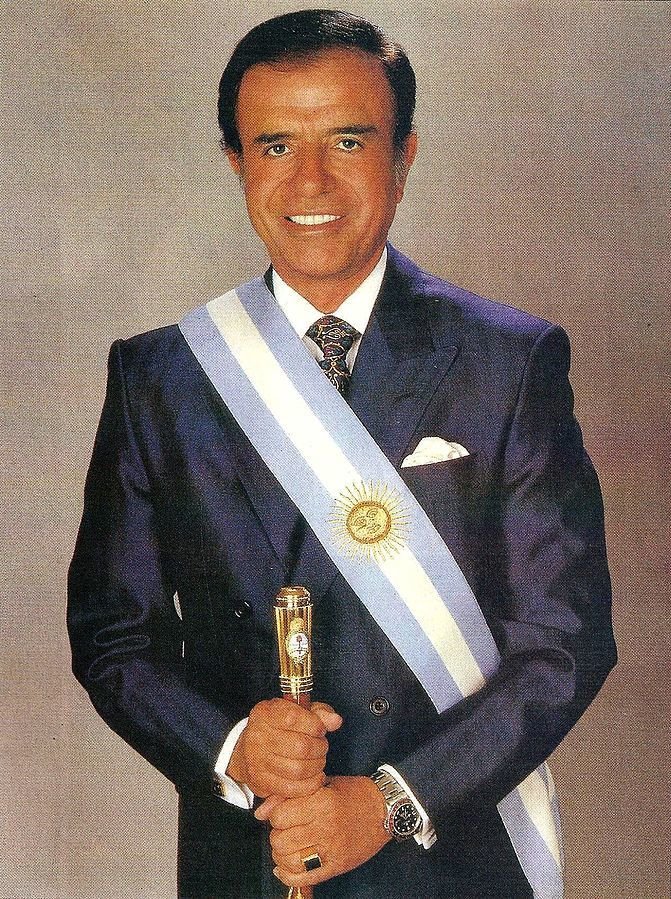
Extractive political institutions in Argentina (cont.)
Every president since Juan Domingo Peron (1946-55)
pack Supreme Court with their supporters
President's power: unconstrained
Expropriation by Argentine government
1991
Argentine peso tied to US dollar at 1:1 exchange rate
Many citizens deposit their money in US dollars
anticipating the devaluation of peso in the future
Export fell (Argentine goods became relatively expensive)
to tame hyperinflation since the 1980s (325% a year)
Initially successful with economic growth
1999
Brazil devalued its currency
Expropriation by Argentine government (cont.)
2001
Bank accounts frozen ("El Corralito")
US$ accounts forcibly converted to pesos at 1:1 rate
Then the peso devalued at 1:4
3/4 of citizens' assets
expropriated by government

Image Source: Wikimedia Commons
Protests against frozen bank accounts in 2002
| economic institutions | ||
|---|---|---|
| Secure for everyone |
Property rights | Insecure for majority of people |
| Free | Occupational choice |
Forced labor |
| Free | Entry of new businesses | Prevented by monopolies |
| Unbiased | System of laws | Biased for the powerful/rich |
| Promoted | Public service provision | Discouraged |
Economic Institutions
Inclusive
Extractive
Property rights
Secure for everyone
Insecure for majority of people
Occupational choice
Free
Forced labor
Entry of new businesses
Free
Prevented by monopolies
System of laws
Unbiased
Biased for the powerful / rich
Public service provision
Provided
Limited
That is...

Today's Road Map
Zimbabwe
Sierra Leone (since the 1990s)
Colombia
Argentina
North Korea
Uzbekistan
Egypt
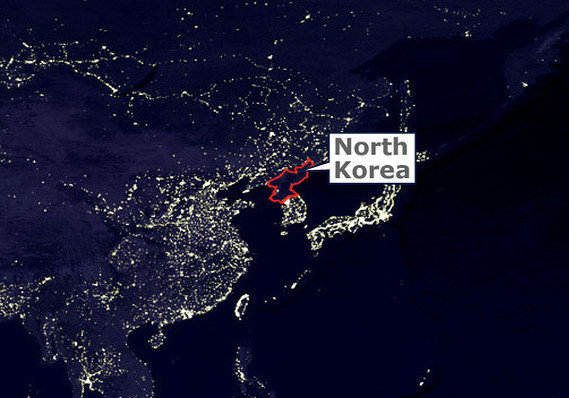
Image Source: marketwatch.com
Expropriation by North Korean government
2009
Currency reform: 100 old wons = 1 new won
Had to be done within a week
Expropriation of citizens' private wealth
No more than 100,000 wons (about US$40)
Exchange for new currency
To punish those using black markets
To keep citizens remain poor
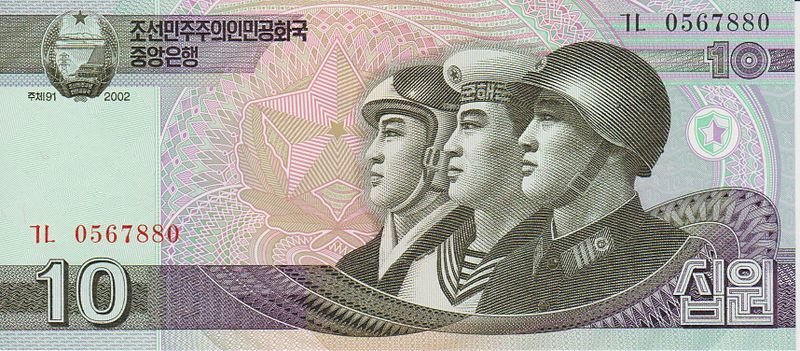
Image Source: Wikipedia
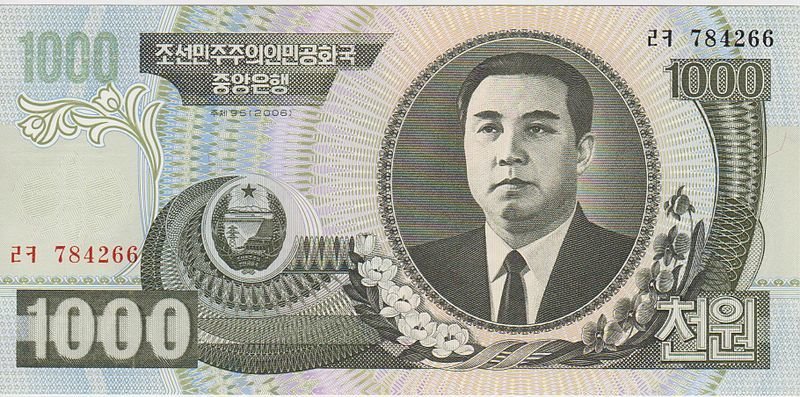
=
Expropriation by North Korean government (cont.)
The ruling elite: enjoy consuming luxury goods
Kim Jong-Il's pleasure palace
US's economic sanction in 2006
bans exporting luxury items to North Korea
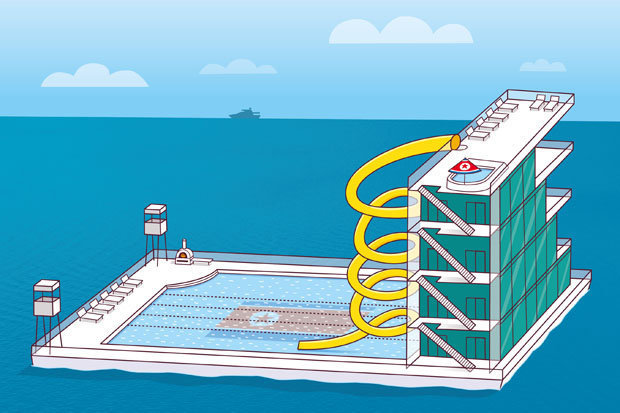
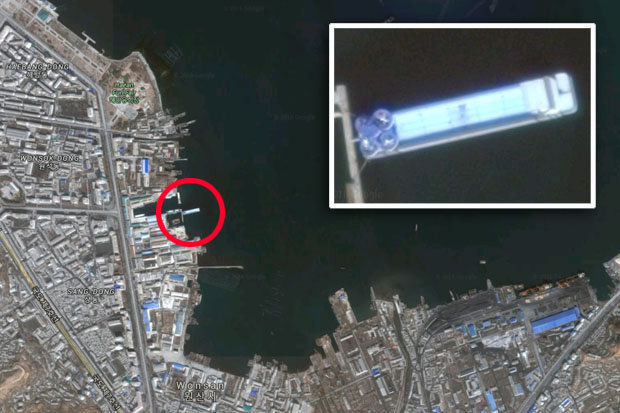
Image Source: Daily Star
Communism as extractive institutions
Extractive political institutions
All power held by communist elite
Opponents purged and murdered
Extractive economic institutions
No private property
No market
| economic institutions | ||
|---|---|---|
| Secure for everyone |
Property rights | Insecure for majority of people |
| Free | Occupational choice |
Forced labor |
| Free | Entry of new businesses | Prevented by monopolies |
| Unbiased | System of laws | Biased for the powerful/rich |
| Promoted | Public service provision | Discouraged |
Economic Institutions
Inclusive
Extractive
Property rights
Secure for everyone
Non-existent
Occupational choice
Free
Forced labor
Entry of new businesses
Free
Market does not exist
System of laws
Unbiased
Biased for the powerful / rich
Public service provision
Provided
Limited
That is...

Today's Road Map
Zimbabwe
Sierra Leone (since the 1990s)
Colombia
Argentina
North Korea
Uzbekistan
Egypt
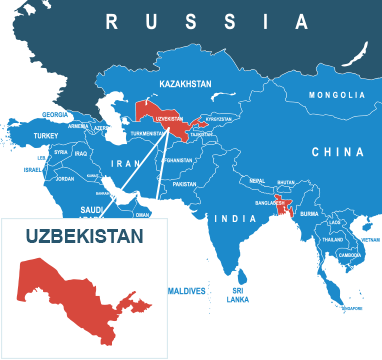
Image Source: parcel2go.com
Political institutions in Uzbekistan
Islam Karimov elected as president in 1991
Crack down opposition
750 demonstrators killed by police and army in 2005
No free media or NGOs allowed
Karimov keeps "winning" presidential elections
91.2% of votes in 2000
(the only opposition candidate also voted for Karimov)
88% of votes in 2007
(widely regarded as fraudulent)
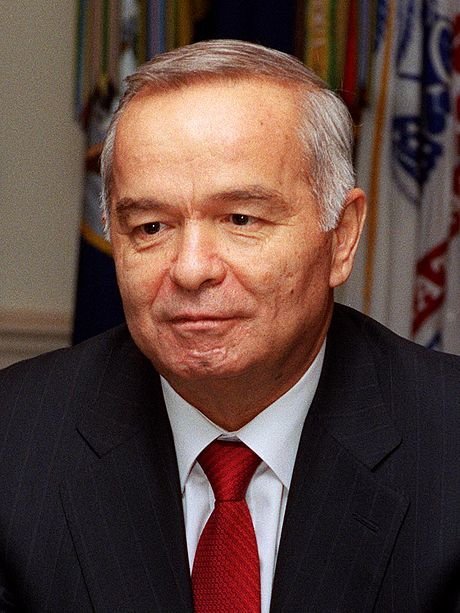
First term extended by a referendum (99.6% in favor) in 1996
Economic institutions in Uzbekistan
Cotton: 45% of Uzbek exports
Its production is heavily regulated
Farmers must allocate 35% of their land to cotton
They get paid a small % of world price (cf. marketing board)
No incentive to maintain/renew combine harvesters
Source: rbranch2008 at YouTube
| economic institutions | ||
|---|---|---|
| Secure for everyone |
Property rights | Insecure for majority of people |
| Free | Occupational choice |
Forced labor |
| Free | Entry of new businesses | Prevented by monopolies |
| Unbiased | System of laws | Biased for the powerful/rich |
| Promoted | Public service provision | Discouraged |
Economic Institutions
Inclusive
Extractive
Property rights
Secure for everyone
Insecure for majority of people
Occupational choice
Free
Forced labor
Entry of new businesses
Free
Prevented by monopolies
System of laws
Unbiased
Biased for the powerful / rich
Public service provision
Provided
Limited
That is...
Economic institutions in Uzbekistan (cont.)
2.7 million school children
forced to harvest cotton for 2 months from early September
Paid $0.03 for 20-60kg of harvest
World price: $1.40 per kg
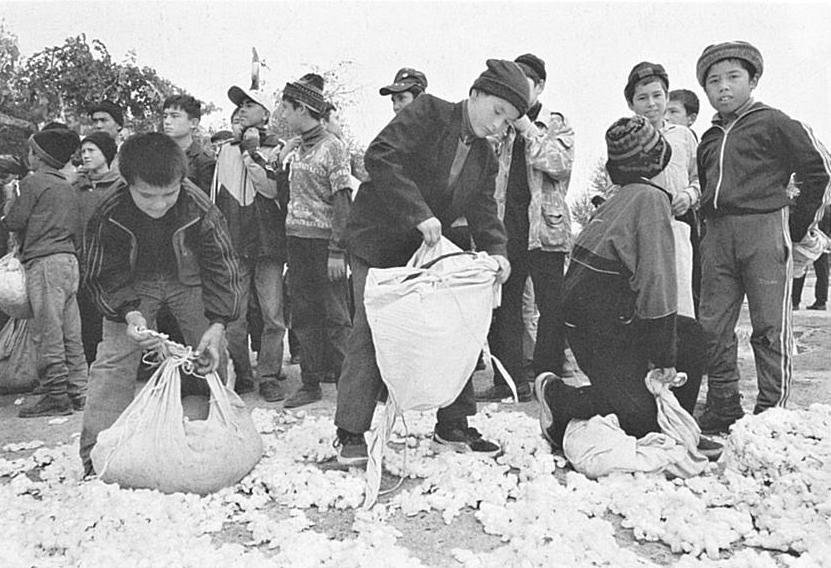
Source: Why Nations Fail
| economic institutions | ||
|---|---|---|
| Secure for everyone |
Property rights | Insecure for majority of people |
| Free | Occupational choice |
Forced labor |
| Free | Entry of new businesses | Prevented by monopolies |
| Unbiased | System of laws | Biased for the powerful/rich |
| Promoted | Public service provision | Discouraged |
Economic Institutions
Inclusive
Extractive
Property rights
Secure for everyone
Insecure for majority of people
Occupational choice
Free
Forced labor
Entry of new businesses
Free
Prevented by monopolies
System of laws
Unbiased
Biased for the powerful / rich
Public service provision
Provided
Limited
That is...
Economic institutions in Uzbekistan (cont.)
U.S company Interspan invested in tea production
By 2005, their market share reaches 30%
Then, Interspan's local personnel arrested, beaten up, tortured
By 2006, Interspan pulled out
President Karimov's family took over
| economic institutions | ||
|---|---|---|
| Secure for everyone |
Property rights | Insecure for majority of people |
| Free | Occupational choice |
Forced labor |
| Free | Entry of new businesses | Prevented by monopolies |
| Unbiased | System of laws | Biased for the powerful/rich |
| Promoted | Public service provision | Discouraged |
Economic Institutions
Inclusive
Extractive
Property rights
Secure for everyone
Insecure for majority of people
Occupational choice
Free
Forced labor
Entry of new businesses
Free
Prevented by monopolies
System of laws
Unbiased
Biased for the powerful / rich
Public service provision
Provided
Limited
That is...
Consequences
1/3 of population live under poverty
Mean annual income: around $1,000
Books are banned; Internet censored

Today's Road Map
Zimbabwe
Sierra Leone (since the 1990s)
Colombia
Argentina
North Korea
Uzbekistan
Egypt

Image Source: parcel2go.com
Origin of extractive institutions in Egypt
1805-1848: Muhammad Ali
State bureaucracy, army, and tax system: modernized
1848-1954: British colonial rule with Ali's dynasty
1954 and afterwards: Military took over
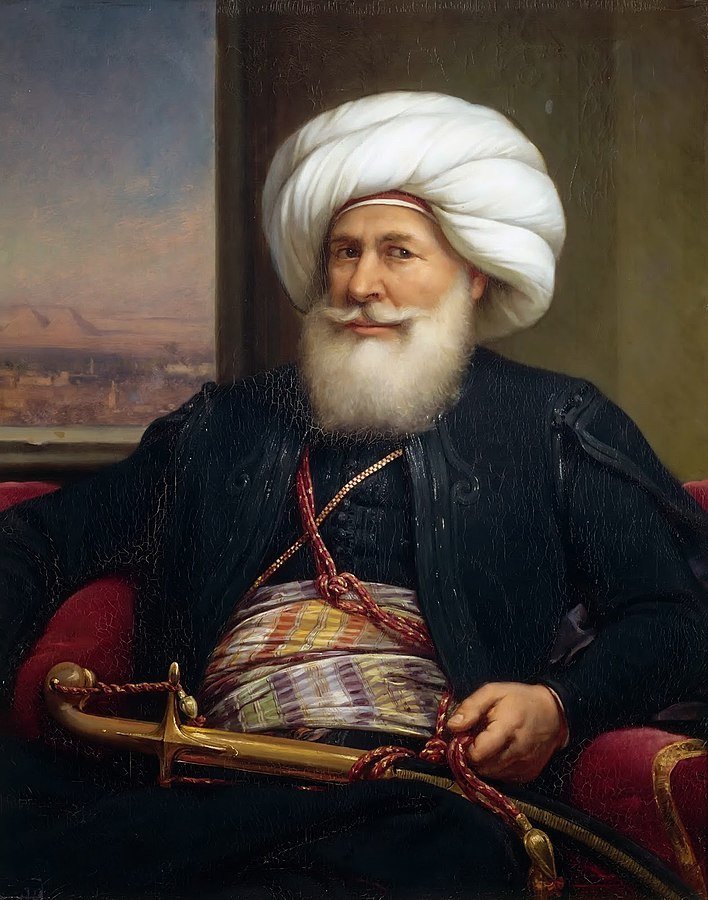
Extractive economic institutions in Egypt
Major businesspeople: appointed as ministers
Put up the restriction on entry, to protect their monopoly
Media, Iron & Steel, Automotive, Alcoholic beverages, Cement, etc.
Receive government contracts and state bank loans
Won the auction for privatized state monopolies in 1990s
| economic institutions | ||
|---|---|---|
| Secure for everyone |
Property rights | Insecure for majority of people |
| Free | Occupational choice |
Forced labor |
| Free | Entry of new businesses | Prevented by monopolies |
| Unbiased | System of laws | Biased for the powerful/rich |
| Promoted | Public service provision | Discouraged |
Economic Institutions
Inclusive
Extractive
Property rights
Secure for everyone
Insecure for majority of people
Occupational choice
Free
Forced labor
Entry of new businesses
Free
Prevented by monopolies
System of laws
Unbiased
Biased for the powerful / rich
Public service provision
Provided
Limited
That is...
Consequences
40% of population earn less than $2 a day
Week 13
Chapter 6
Week 11
Chapter 14
United Kingdom
in 19c
United States
in early 20c
Republic of Venice
Roman Republic
Weeks 11-13: Survival of Inclusive Institutions
Botswana
US South
in the 1950s-1960s
Brazil
since the 1970s
Week 12
Chapter 11
Your to-do list until next class
Read Chapter 14 along with
pp. 455-460 on Brazil
and post questions on Prulu
1
2
3
Start collecting documents on political/economic events in your country
Assemble data for your country
Politics through the Lens of Economics (2018): Lecture 10
By Masayuki Kudamatsu
Politics through the Lens of Economics (2018): Lecture 10
- 2,580



